
Constipation
Constipation is a condition in which you can’t move your bowels on a regular schedule, resulting in dry, hard stool that is difficult to pass. Normal bowel habits differ among healthy people. Some people have one or more bowel movements daily, while others may have just two to three a week. You are said to be constipated when your normal pattern slows dramatically.
Don’t suffer in silence, find out how to treat and prevent constipation.

Incontinence
There are two common types of incontinence. If you have a little leakage when you laugh, sneeze, or exert yourself (lifting something or running hard, perhaps), that’s stress incontinence. Your urinary sphincter-the muscles that surround the urethra, which carries urine from the bladder-is weak and opens during “stress.” If you have unpredictable, overwhelming urges to urinate and realize you might not make it to the bathroom, you’ve got urge incontinence. This begins as a condition called overactive bladder, an intense and too-frequent need to urinate. With urge incontinence, problems arise when muscles around the bladder abruptly contract, and suddenly you have to go. Your sphincter and pelvic muscles might be able to stop the flow, but your bladder is insisting on relief.
More severe types of incontinence are called overflow incontinence and total incontinence. People with these conditions often need special devices to hold urine overflow.
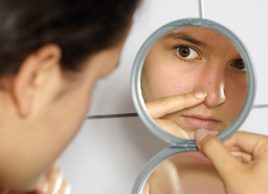
Adult acne
Acne occurs when the oil (or sebaceous) glands under hair follicles-often on your face, neck, chest, or back-get plugged up, inflamed, or infected. Frequently the glands simply secrete too much of a thick, waxy lubricant called sebum that keeps your skin healthy. Sebum can block the pores and create a perfect breeding ground for bacteria. Follicles then get red and inflamed. In mild cases of acne (referred to as acne vulgaris), whiteheads and blackheads as well as some raised red blemishes appear. In more severe cases (cystic acne), pus-filled cysts and deep nodules form around the inflamed follicles, causing unsightly bumps and tenderness, which are often painful.
Read more about treatment for adult acne.
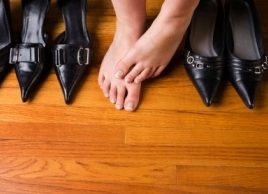
Bunions
Come sandal season, bunions can be an embarrassing, not to mention painful, condition.
A bunion is a swelling of the joint between the base of the big toe and the first metatarsal bone. As the joint gradually swells, the skin becomes hard, red and tender. The big toe is then displaced towards the other toes.
Find out how to prevent and treat bunions.
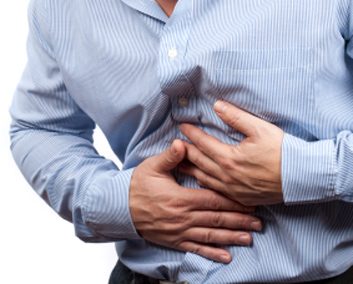
Diarrhea
Diarrhea is usually caused by a viral or bacterial infection of the small intestine. It can also be caused by certain medications (such as antibiotics, blood pressure drugs, and magnesium-containing antacids), certain medical conditions, and food poisoning. Intolerance to wheat, lactose (the sugar found in milk), or fructose (the sugar in fruits) is another cause. Diarrhea may also accompany inflammatory bowel disease and irritable bowel syndrome.
Find out how to treat and prevent diarrhea.
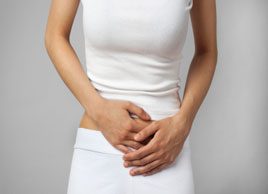
Irritable bowel syndrome
The alternating bouts of diarrhea and constipation associated with irritable bowel syndrome typically develop in the late teens or early 20s, primarily in women. Many people who have it are never diagnosed, however, because medical tests routinely show nothing out of the ordinary.
There’s plenty of speculation about why the colon misfires. Some suggest that hormonal problems play a role (women with irritable bowel syndrome seem to have more symptoms on premenstrual days) or that a chemical imbalance in the brain may be present. Specific foods seem to trigger IBS flare-ups in some people, including the inability to digest lactose. Overuse of antibiotics could be another cause, as can a bacterial, viral, or parasitic infection.
Stress also appears to be another key factor of irritable bowel syndrome. Even a healthy person experiencing the natural “fight or flight” response that occurs in a very stressful situation will have intestinal spasms and sometimes an involuntary emptying of the bowels. But, people susceptible to IBS experience this intestinal response to stress to an excessive degree.
Do you suffer from IBS? Find out more about your treatment options.
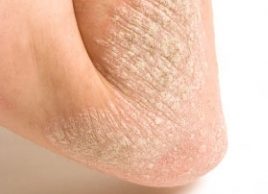
Psoriasis
This chronic skin disease isn’t easy to ignore: Its raised red patches covered with silvery scales itch (fittingly, “psoriasis” comes from the Greek for “itch”). Your self-image may suffer if it spreads. Psoriasis occurs when production of new skin cells outpaces the rate at which old ones are shed. As a result, live cells accumulate in raised areas covered with whitish flakes of immature skin cells (or plaques). Researchers say this rapid cell turnover relates to an inherited immune system disorder that can be activated by stress, cold weather, infection, or an abrasion.
Find out how to treat psoriasis.

Yeast infection
Most women will experience the itching and burning of a yeast infection, which is an overgrowth of the Candida albicans fungus that normally lives in the vagina.
Anything that upsets the balance of vaginal organisms-taking antibiotics or steroid medications, pregnancy, a weakened immune system, fatigue or stress, or poor hygiene-can trigger a yeast infection.
Find out more about treatment options.
Related:
• 5 health conditions that are caused by diabetes
• 7 health conditions that are helped by antioxidants
• 5 questions to always ask your dentist
